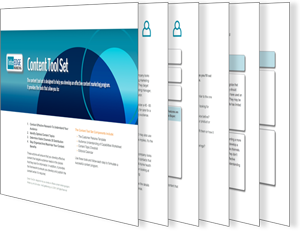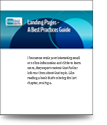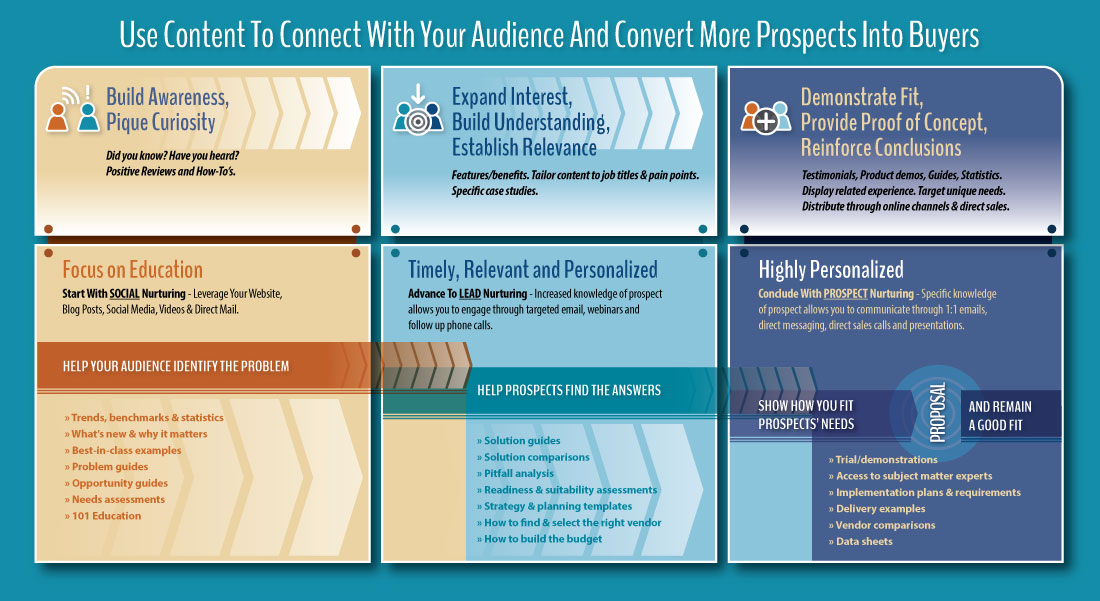
How does your sales organization connect with buyers as they start formulating purchasing decisions? Many companies utilize content marketing. It allows you to reach your target audience as they self educate and build understanding about potential solutions. But, developing an effective program that impacts your target audience requires an investment in time and resources. Undoubtedly, your organization has experience developing sales budgets. But, if you were asked to develop a content marketing budget, where would you start?
Developing A Content Marketing Budget
What type of investments and expenditures connect you with your best prospects?
Research Generates Better Outcome
If you are in the market for almost any product or service, sources like Consumer Reports make it easy to compare and understand the pros and cons of various options.
But, determining the best content topics and distribution channels aren’t like buying a toaster.
So how do you know where to make your investments? Unquestionably, it depends upon your target audience.
In fact, whether you are starting a content marketing program or are ready to take one into overdrive, research is an essential step. It enables the development of buyer personas. A persona typically represents the unique buyers and influencers in your target audience.

Download the Content Tool Set To Learn More About Persona Development
For example, a commercial printer selling to a manufacturer will likely target marketing VPs and directors, marketing managers, product managers and purchasing. Each one has unique content interests, influences and preferences. Uncovering that information will help you better understand the type of topics your audience uses to self-educate, build understanding and start formulating a purchasing decision. In addition, you’ll determine the channels that are most likely to reach your prospects.
Persona Research
You can conduct persona research using your internal staff or engage a content marketing agency to handle the process. Either way, the research should target customer-facing employees, current customers in each unique buyer category and prospects. Furthermore, expanding your reach through an online survey broadens your reach and provides additional data points. Lastly, assessing website analytics data will further refine and add value to the research.
Content Research Budget Considerations
If you haven’t conducted persona research before, engage an expert to help you build a plan. It will elevate the outcome. Of course, available staff members can support the process, assisting with interviews, surveys, website analytics and more, to mitigate costs.
But, If you don’t have internal resources available, a content marketing agency can execute the entire process.
Depending upon your target audience and the complexity of the buying cycle, this cost varies widely. It can range from a few thousand to tens of thousands of dollars. But, this investment makes it far more likely that the content you develop will impact your target audience and generate new sales opportunities.
Content Cost Drivers
The content marketing research will quantify:
- The information your prospects value
- Where they typically go to access it
- Type
- Design
- Frequency
- Distribution
Content Strategy
Content can elevate your position with prospects and engage them as they formulate buying decisions. But creating content isn’t enough. It requires a well-defined strategy. And, a plan that demonstrates who you are and the expertise you bring to your audience.
That plan includes four key elements:
1) Content Types
Which content types connect best with your audience? Content comes in dozens of different shapes and sizes. And those differences influence the cost. For example, a product explainer video costs more than a webpage that explains the same product.
Topic complexity is another variable. A thoroughly researched in-depth white paper costs more than a 300-word blog post.
2) Graphic Design
Effective graphic design accentuates exceptional content. For example:
- An effective design creates a positive impression making it more likely that readers consume your content
- Content with images is read at double the rate of content without images
- A well designed and easy to read format increases content understanding
3) Content Frequency
Content compounds like your money.
To illustrate, a $10,000 investment at 5% interest turns into $33,000 in 30 years. But, taking the same $10,000, and investing an additional $80 each month over the same 30 year period, turns into $107,000 - more than three times the value!
Likewise, a regular content investment will increase your return. A well written, effectively optimized weekly blog post will return more page views, click-throughs to your site and potential leads than a monthly version.
$33,000 Beats $10,000
But remember, compounding delivers significant benefits even with less frequent contributions. And, the same is true for content. A regular monthly or quarterly post still provides value.
So, although it’s wise to develop a budget that creates more useful content, it’s not an all or nothing proposition.
4) Content Distribution
Distributing relevant content to the prospects defined in your research is crucial to content marketing success. In addition to your own channels, such as your website, blog or newsletter, there are other options to consider:
- Earned content distribution
- Paid content distribution
Earned Content Distribution
Earned content distribution involves a third party and includes guest blog posts, forums, comments, retweets, shares and more. The purpose is threefold:
- Expand the reach of your content
- Increase your content return on investment
- Elevate your brand perception
Paid Content Distribution
As the name infers, paid content distribution is paying to distribute your content. This most commonly occurs through Google Adwords, social media ads and online sponsorships. It’s another way to expand the reach of your content investment.
The type of content, the length, amount of research and graphic design influence the cost and make it difficult to quantify. In ballpark numbers you can anticipate the following:
Cost Of Content
- Blog Posts - a few hundred to $2,000 depending upon length and amount of research
- White Papers - $750 - to a few thousand depending upon length, complexity and amount of research
- Newsletters - $500 - $1,500
- Infographics $500 - $1,500
- Video - $1,500 - $5,000
Fortunately, distribution costs are easier to quantify.
Cost Of Content Distribution
- Earned Content - $500 - $1,500 per each high value piece - approximately 10 - 15 channels
- Paid Content - $10 - $100 per piece
Content Marketing Budget Considerations
Regardless of the numbers you see attached to any content development, it’s possible to find less costly sources. However, the best returns come from a well developed and orchestrated plan.
Poorly researched articles and information bordering on generic don't connect with prospects. Well written but one-off articles don’t gain traction, especially when they aren’t part of an overall plan.
So, whatever you choose, make sure you spend the time to research your audience and develop an overall plan. It will maximize the value of your content marketing investments and connect you with more prospects that need what you sell.
InterEdge Marketing delivers content marketing programs that help organizations drive revenue. Subscribe to our newsletter to get bi-monthly tips on how to elevate your marketing programs.



 Insight Delivered Directly to You Interesting topics, great offers and free marketing tools.
Insight Delivered Directly to You Interesting topics, great offers and free marketing tools.

